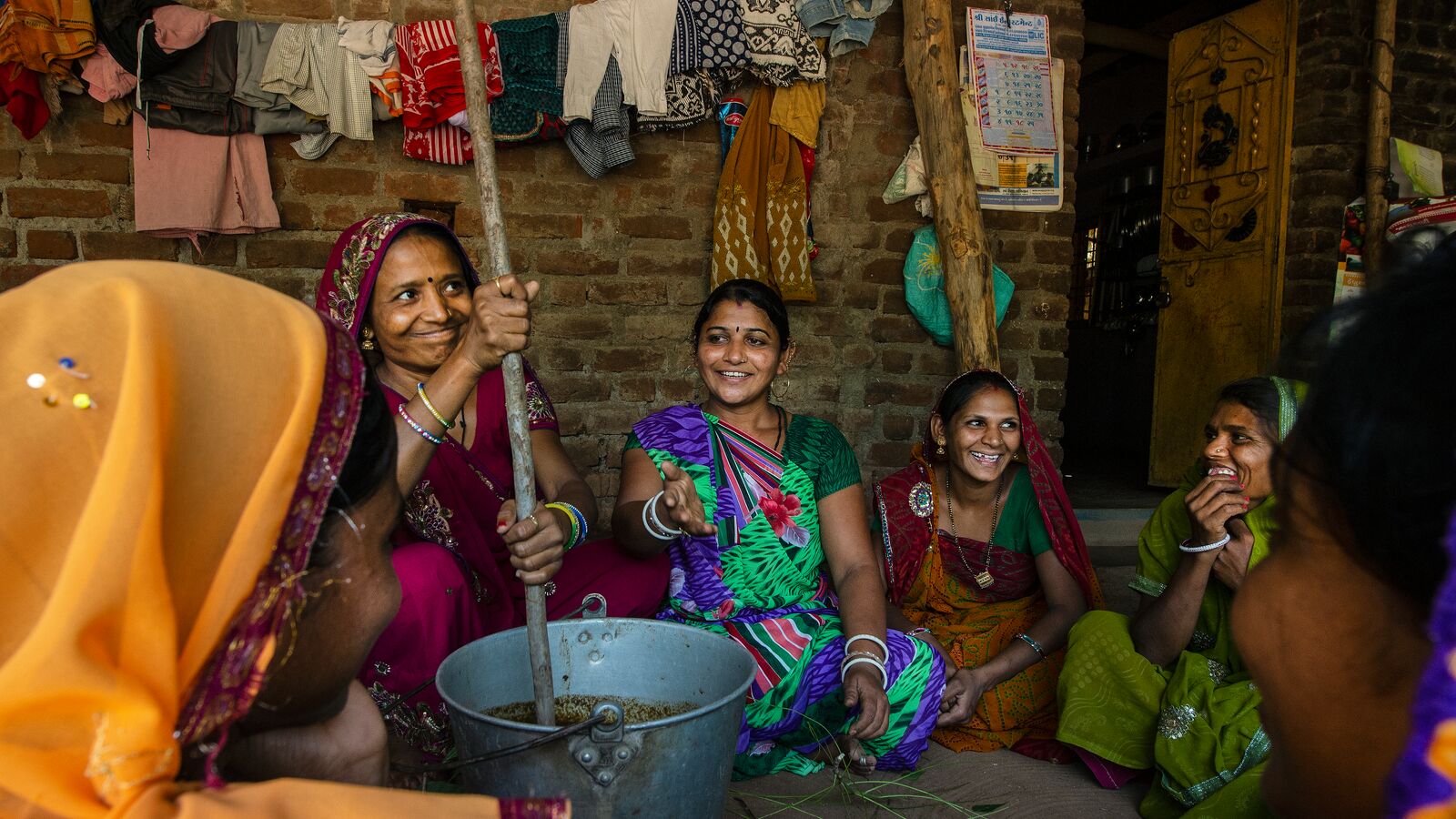Fairoza Bano is a single mother of three who cleaned homes to make ends meet. She worked long hours, seven days a week, for low wages. She had always dreamed of owning her own beauty shop, and she finally found the resources to set one up in Davanagere, Karnataka. Being self-employed provided her with not only more money but with more time to spend with her children.
The COVID-19 lockdown was devastating for Fairoza. Since no one could leave their homes, she lost all of her clients. Fortunately, she has since found the resources and strength to rebuild her business.
Fairoza is among a group of entrepreneurs in India called nano entrepreneurs. This small and vulnerable group has been hit especially hard by COVID-19, with 79% spiraling into debt and poverty. Without the ability to work from home or use digital innovations for their businesses, many have been forced to close permanently.
What is a nano entrepreneur?
Nano entrepreneurs are people who typically run small retail or kirana shops, are micro wholesalers, or earn a livelihood as street vendors. They have not had the benefit of receiving a college education, which prevents them from attaining formal means of employment. They live in rented homes and earn less than INR 25,000 ($330 USD) a month. Many may have been shouldering debt even before the pandemic, making it even more dire for those who have faced a health or a debt crisis during the pandemic.
Nano entrepreneurs face different challenges than their small and medium-enterprise counterparts. However, nano entrepreneurs frequently get grouped with small and medium enterprises. For nano entrepreneurs, there is rarely a distinction between their personal and business incomes. And unlike MSMEs, they:
- Have no collateral for loans and negligible insurance coverage.
- Have no access to resources to help them scale.
- Lack any specific skills or formal training.
- Have little to no access to markets to help grow their business.
In short, they are one nudge away from being pushed into poverty.
There rarely is any focus on micro enterprises, which includes the nano cohort. This has been evident during the pandemic as these enterprises were caught in the middle, with limited knowledge of or access to formal credit or government loans and relief funds.
Nano entrepreneurs are often mistaken for microfinance clients and blue-and-grey-collar gig workers, even though the latter two have access to credit facilities that nano entrepreneurs do not. For instance, microfinance clients rely on peer guarantors to access credit. Gig workers, like Uber drivers today are digitally enabled and have an official record of employment, transactions, and other details on a mobile platform. This formalization helps them access formal credit, insurance, and investments, enabling them to attain financial independence and wellbeing.
Nano enterprises represent a unique segment with distinct characteristics and their own set of challenges. They need customized solutions, and it is time to get them back on track to restore their livelihoods and nurture their businesses for growth and sustainability.
Different challenges need differentiated solutions
We have been working with our partners to ensure more nano entrepreneurs have opportunities to build businesses that can thrive. For example, Fairoza received a returnable grant through our partner, Samhita. Samhita’s REVIVE Alliance offers a returnable grant—a zero-interest finance program where the purchaser has a moral obligation to pay back the grant with no pressure of interest. Repayment begins once the individual has gotten back on their feet. With a returnable grant, Fairoza was able to reopen her beauty shop and continue supporting her family. She is once again “Beautician Bano,” as she likes to call herself.
Other partners like Avanti Finance, Arth Impact, Vivriti Capital, Kinara Capital, Caspian, and Northern Arc have created several models to get nanos a step closer to financial inclusion creating collateral-free loans. With our partners Caspian and Northern Arc, we have been able to create guarantor arrangements to unlock large sums of loans. These guarantors secure any kind of risk of non-payment and provide a ready pool of cash liquidity.
In the coming year, we will continue to tailor financial models that can best serve nano entrepreneurs.
Better opportunities for nano entrepreneurs
We owe it to people like Fairoza to provide better access to credit so they have opportunities to build and grow their businesses. On a larger scale, we need to invest in this segment of the population by scaling up and designing customized solutions.
Nano enterprises have a significant role to play in the growth of our economy, from generating employment opportunities to contributing a significant share to our GDP. The best way for our economy to thrive is for people to thrive in their livelihoods. It is on all of us to ensure we aren’t leaving anyone behind.
